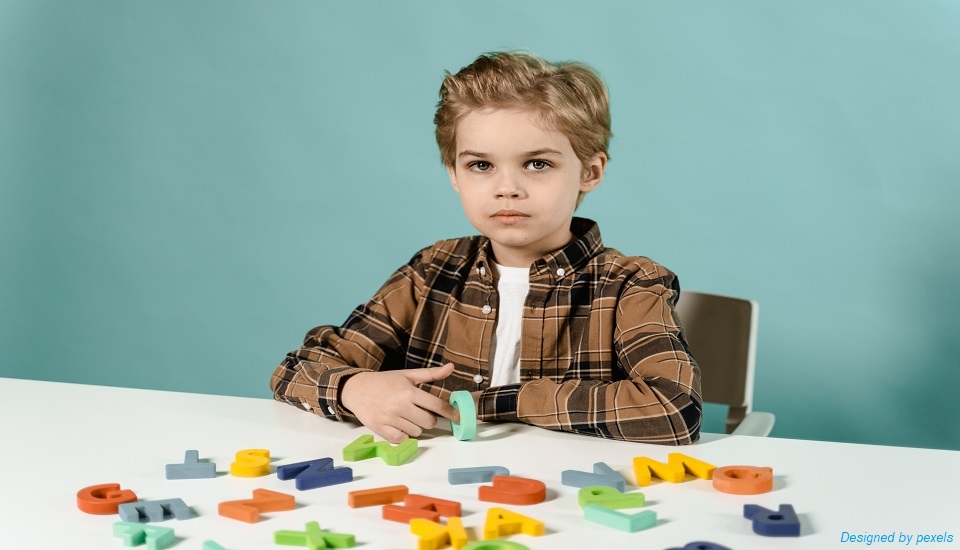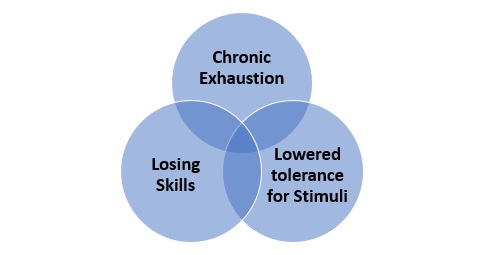Autistic Burnout Major Reasons And Things To Do, Explained
26th October 2022

Autistic burnout is also known as autistic regression. Certainly, it is a state of pressure and exhaustion in an autistic child. It is a penetrating physical, mental or emotional fatigue. As a skilled special education teacher, if you don’t understand what’s happening, it can be a jarring experience for your autistic students.
So, what is autistic burnout?
Is burnout the same as a sensory burden?
Let us find out!
Understanding the Autistic Burnout
Before anything, it is important for you to understand the fact that autistic burnout is completely different from depression, as well as the burnout neurotypical individuals generally experience. According to the research, autistic burnout is –

Therefore, normalizing autistic burnout helps people feel less sensitive and more accepting. It is also important to understand that autistic burnout is not related to overload. However, some symptoms can overlay.
During autistic burnout, mental, emotive, and even physical resources have become exhausted which leads to an imperious need for rest. The fatigue of autistic burnout is frequently a consequence of trying to do too much for too extended.
What Are the Signs & Symptoms of Autistic Burnout?
Here are some common symptoms and signs that an autistic child may be experiencing autistic burnout:
- Trouble with self-regulation
- Difficulty with speech and communication
- Reduced vocabulary
- Problems with executive function
- Struggles to get started on tasks
- Emotional instability
- Reduced eye contact
- Difficulty with activities of daily living
- Amplified sensory sensitivities
- Difficulty with social communications
- Increased frequency of autistic behaviors
- Irritability
- Having meltdowns or shutdowns more often
- Requiring more sleep and rest
- Difficulty with understanding and memory
If not identified timely, over the long-term, autistic burnout can lead to bigger anxiety and depression among those who agonize.
Why Does Autistic Burnout Happen?
Well, according to experts and research, the meticulous reasons for autistic burnout may diverge. But, in general, autistic burnout happens when ---
- When an autistic child is overloaded, and has been mostly operating beyond capacity.
- It can also occur throughout times of major stress like puberty or starting at a new school or job.
- Autistic masking, is the act of camouflaging one’s autistic behaviors to “blend in” or go unnoticed as diverse.
- Can also be a result of sensory overstimulation.
- When external outlooks (the weight of social obligation) overshadow the inner ability to meet those.
- Masking the autistic traits.
- Stress from staying in a world not set up to lodge autistic individuals.
- Gaslighting or discharge while trying to describe the autistic burnout.
- Failure to take a break from stress.
- Inadequate external resources and support.
Preventing Autistic Burnout
Well, experts say autistic burnout may feel perplexing, but recovery is possible.
If your autistic student is experiencing autistic burnout, understand that it is most frequently a temporary one. Your student will feel better if he/she takes some rest and recharges as much as possible. Remember, before anything, acceptance and support are the primary things that you need to do.
Reduced load helps in managing autistic burnout. Reducing social movement or other kinds of more traumatic activities helps. Try to make a room for as much downtime as you can for your autistic learners, with fewer extracurriculars and social events. Let them take part in various soothing activities.
Look for or amend an IEP or 504 plan to safeguard needed accommodations for your autistic learners. Implement additional sensory provisions and breaks to uphold the comfort and energy levels. Needless to say, there are also therapeutic medications for patients suffering from autistic burnout. Occupational Therapy can usually offer effective solutions for easing the effects of autistic burnout.
To End With
Growing awareness about autistic burnout by connecting with the autistic community will help you in order to support autistic kids in your classroom. Consider autism courses for teachers to be more aware of teaching autistic students. You will learn the different interventions to decrease the discrimination and stigma associated with autism.
Be armed with this awareness!
Looking for earning an autism awareness certification? If yes then call us at 1800 212 6400 or + 919739615888. Chat with our expert if you have any questions, send us an email at to act@asiancollegeofteachers.com to find out more.
Written By: Bindita Sinha
